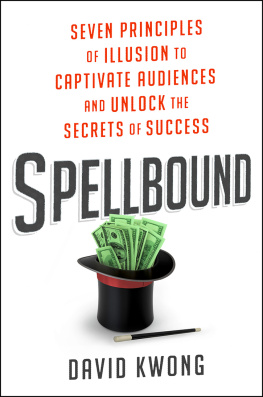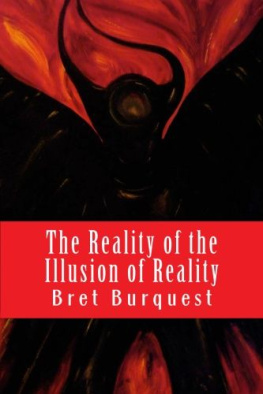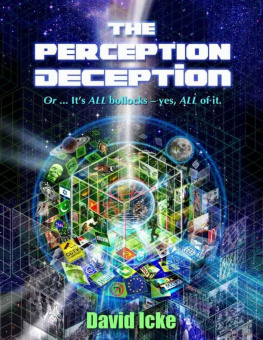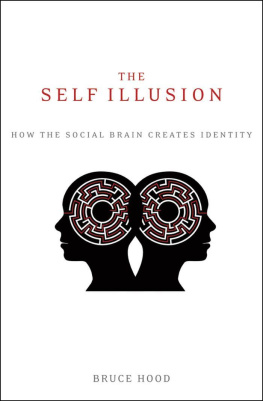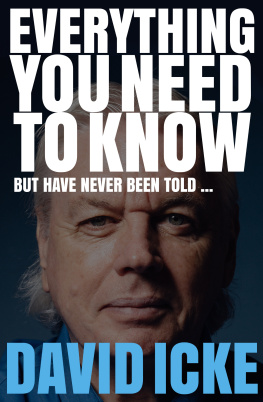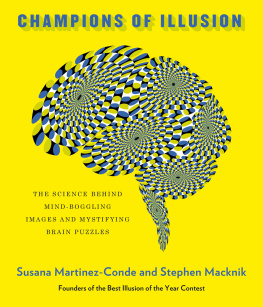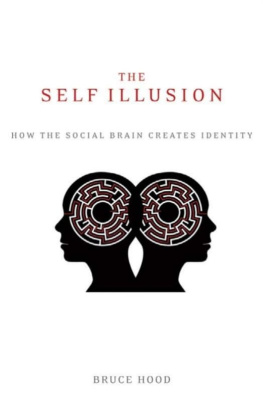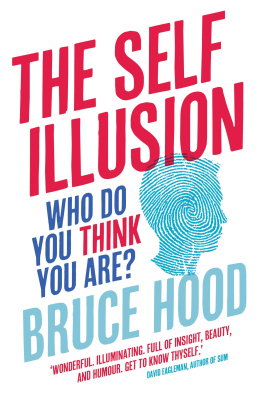Contents
To my parents and my brotherJoanie, Tai, and Michael,
Thank you for your love, support, and the literally thousands of cards that you've picked.
Many magicians pretend to have superpowers. They strive to convince spectators that their feats are impossible for mere mortals to comprehend, let alone imitate. Often they claim to have extrasensory or telepathic abilities. Not all illusionists play these games, however. There are thosefar fewer in numberwho freely acknowledge that their powers are the product of tricks and of years of study. I fall into this latter camp.
Though I, too, pride myself on giving my audiences the thrill of disbelief, of mystery and a sense of the impossible, I dont pretend that the power of illusion is supernatural. On the contrary, I understand and insist that magic actually takes place in the mind of the spectator. Its a deeply and fundamentally human process, which is why those who command the true power of illusion are masters, not of ESP, but of insight and influence.
I practice illusionism as entertainment. My audiences range from corporate CEOs to TED talk viewers, and my stock in trade consists of cards and crossword puzzles, ordinary objects and information encoded in the minds of volunteers. I dont pull rabbits from hats, or use smoke and mirrors. I dont vanish tigers, or levitate scantily clad women. My foremost advantage as a magician is that Im always one step ahead (or two or three or four). My hand is quicker than your eye. I know what youll notice, and what you wont. I employ science to conjure feats that only appear impossible.
The original sorcerers used the very same tricks, though most would have rather been burned at the stake than admit it. Magics roots stretch back to the occult and shamanistic rituals of high priests, astrologists, and oracles, many of whom used supposedly psychic gifts to direct the conduct of emperors and kings. The ability to hold a royal audience spellbound often led to political power. The sorcerers currency was awe, and their audiences were willing to pay dearly for it.
As the saying goes, the more things change, the more they stay the same. Our lives today may appear to be dominated more by global technology than by royal sorcerers, but illusion still plays a fundamental role in all human thought. Every one of us relies on illusory information to help us decide what is true and whats false, who is trustworthy and whos not, what the future will hold, and what our options are. Arguably, the principles of illusion have never played a stronger role in determining our leaders, policies, and success stories than they do today.
When Steve Jobs introduced the Apple II, didnt he have to create an illusion of novelty that telegraphed the exceptionalism of his improvements on Apple I? When Maestro Gustavo Dudamel raises his baton to conduct the Los Angeles Philharmonic, doesnt he project an illusion of absolute readiness that will override any hesitation among his orchestra members? And when Warren Buffett is bucking trends that dominate Wall Street, mustnt he simultaneously deploy an illusion of certainty to compel his investors to trust his wisdom and leadership? Business and thought leaders as diverse as Ted Turner and President Obama, Megyn Kelly and Jeff Bezos, have used the principles of illusion to sway opinions and secure power and influence. Some CEOs, such as Kind Snacks Daniel Lubetzky, Aaron Levie of Box.net, Supplemental Health Cares Janet Elkin, and Tony Hsieh of Zappos, literally performed as magicians before entering the corporate world. But whether or not theyve ever conducted stage illusions, all successful executives are masters of control and agents of command. They understand how the human brain is wired to fill the gap between seeing and believingand they take advantage of that wiring for their own purposes.
Ultimately, compelling leaders know how dependent their audiences are on illusion, and they use that knowledge to impress, persuade, and motivate. Just as you can.
There is no official instruction manual for practicing illusion. However, in this book Ive distilled the methods I use onstage into seven core principles that have centuries of beta-tested success behind them. These seven fundamentals empower magicians to command a room, to build anticipation, and to appear to work wonders. They keep us at least one step ahead of the audience, showcasing our abilities and converting skeptics into supporters. But you dont have to be a magician to master these principles. And you neednt be an entertainer to benefit from them. On the contrary, they can be game changers for you in any arenapolitical, corporate, technological, even in your social life.
In the chapters that follow youll learn the rules of human behavior and cognition that make your audience susceptible to illusion. Youll meet thought leaders and innovators throughout history who have used these tenets to leverage their ideas into industry empires. And youll discover how these seven principles can give you an edge on the competition and grant you a greater sense of control in your own life.
You know how cutthroat the world is today. Everyone is trying to land a better job, obtain the green light for their project, attract more customers, clients, and friends. Everyone wants to get aheadand everyone is trying in the same way. Thats their problem. But the principles of illusion will give you a different approach to sell your idea, product, or skills, making your best shot better than everyone elses.
Let me be clear: Im not going to teach you how to perform specific magic tricks. For ages, the best of these acts have been handed down from masters to apprentices, from fathers to sons through generations of family trade. This practice is considered so sacred that, for lack of a suitable heir, the pioneering Austrian magician Johann Nepomuk Hofzinser actually ordered his own priceless library destroyed upon his death in 1875. The reason for this secrecy is simple: Knowing exactly how a trick works undermines the illusion. It wrecks the trade. And it ruins the mystery. I would never explain anyone elses trade secrets. Im not going to rob you of the joy of watching a magic show. And Im not going to teach you how to become a magicianthough I do believe youll appreciate the art of illusion more when you understand its underlying principles.
Nor am I going to show you how to cheat. It is in the nature of magic to deceive, and the line between illusion and con artistry can be slippery, but the purpose of this book is most definitely not to serve as a guide for conning people. On the contrary, I want to emphasize that the more you make your audience believe, the greater your responsibility becomes for the effects of that belief.
Illusion is a powerful business. Between your designs and the other persons awe, there will always be a certain amount of manipulation. If your manipulations are intended to enrich or empower yourself at your audiences expense, that could qualify as a con. On the other hand, if you use illusion as a tool to legitimately educate or assist your audiences, then youll deserve to be regarded as a hero. Consequences count.
Magic asks you to question what you see before you and envision what cant possibly be there. To harness the power of the magical gap between what is and what could be, for your own ethical purposesthat is the real business of this book. As a bonus, youll learn how to spot a con and protect yourself from the dirty tricks of fraudsters! The best defense is an educated offense, especially when dealing with illusions.
What I will reveal to you are the seven essential principles that form the foundation for illusion in magic and in life. In the chapters to come youll learn how and why to approach your goals as a magician would:

